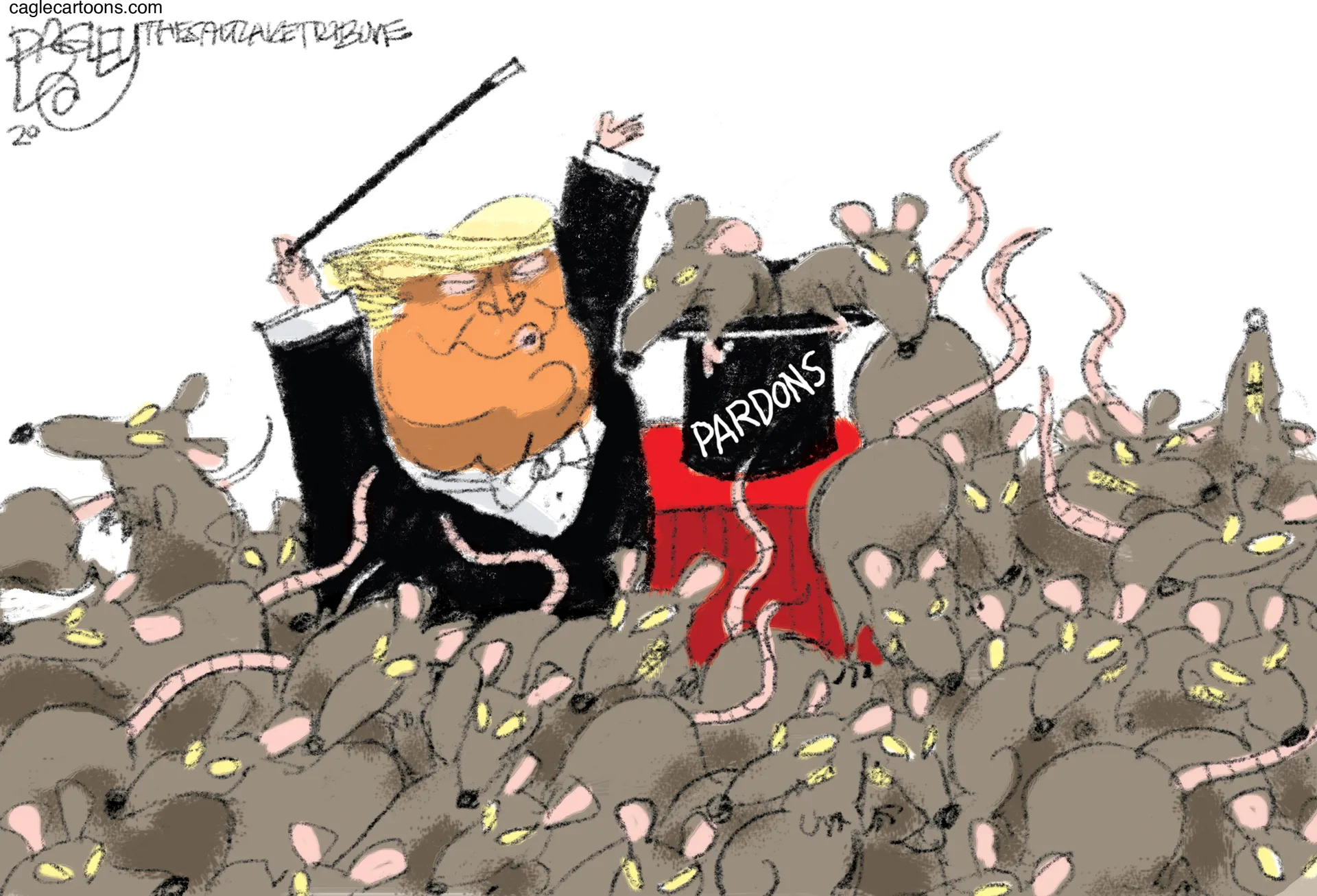Under Donald Trump, the power of presidential pardons became something far from its intended purpose. A tool of mercy? Sure. But under Trump, it was wielded like a political weapon—rewarding loyalty and, in some cases, justifying violence.
It wasn’t just the usual suspects: corporate crooks and white-collar criminals. Trump’s clemency spree extended to a who’s who of political extremists and violent offenders—people who weren’t just breaking the law, they were doing so in the name of Trumpism.
Let’s break it down:
The Politicians and Cronies: Rewarding the Faithful
- Roger Stone: Convicted of lying to Congress and witness tampering, Stone was pardoned after making clear his loyalty to Trump.
- Paul Manafort: Convicted for financial crimes and conspiracy against the U.S. Trump handed him a pardon for not cooperating with investigators.
- Michael Flynn: Pleaded guilty to lying to the FBI, and Trump ultimately pardoned him to prevent further damage.
- Charles Kushner: Jared’s father, involved in tax evasion and witness retaliation. He got a pardon after spending years in prison.
Trump also granted clemency to at least 10 healthcare executives and doctors convicted in large-scale Medicare fraud schemes.
Many wealthy individuals paid tens of thousands of dollars to former advisors to Trump for them to lobby Trump to grant pardons, bypassing the review process of the Office of the Pardon Attorney.
Trump also issued pardons to seven Republican congressmen convicted of crimes: Chris Collins, Duncan D. Hunter, Steve Stockman, Rick Renzi, Robin Hayes, Mark Siljander, and Randall “Duke” Cunningham.
The Dangerous Extremists: Making America More Unsafe Trump didn’t stop there. He pardoned individuals with ties to violent, far-right extremist groups who were involved in the January 6th insurrection.
- Stewart Rhodes: Leader of the Oath Keepers, convicted of seditious conspiracy—Trump pardoned him.
- Enrique Tarrio: Leader of the Proud Boys, convicted of seditious conspiracy—also pardoned.
- Other Violent Extremists: From assaulting police officers to planning further attacks, many insurrectionists were given clemency. Convicted murderers. – Trump also Pardoned 4 Blackwater Guards Who Killed 14 Iraqi Civilians – Nicholas Slatten, Paul Slough, Evan Liberty and Dustin Heard were convicted of killing 14 Iraqi civilians and the wounding of 17 others. Witnesses described how these men ambushed civilians with heavy gunfire and grenade launchers.
What Does It Mean for Justice? Trump’s pardons weren’t about justice. They weren’t about redemption. They were about loyalty— loyalty to Trump himself. These individuals weren’t simply guilty of breaking laws; many were involved in dangerous, violent plots against American democracy.
Trump’s actions send a clear message to those who break the law in his name: “Don’t worry. If you’re with me, I’ll clear your record.”
Safety and National Security This is where Trump’s pardons take a darker turn. Trump didn’t just pardon white-collar criminals—he pardoned individuals who posed a direct threat to America’s security. By clearing the records of violent extremists who stormed the Capitol, he encouraged further acts of political violence. He didn’t just undermine justice—he made the country less safe.
A Message for the Future This isn’t just about one president’s bad choices. It’s about setting a precedent that loyalty overrules law and order. Trump’s pardons were a dress rehearsal for autocracy—a signal that political violence won’t just be tolerated, but rewarded.
As we move forward, it’s vital to understand the dangers that Trump’s actions have set in motion. If the next wave of violence comes, it won’t just be angry—it’ll be emboldened.
This isn’t democracy.
This is dictatorship in disguise, and it should make every citizen pause and reflect on the future we want to build.
#TrumpPardons #PoliticalViolence #Justice #Trumpism #NationalSecurity
